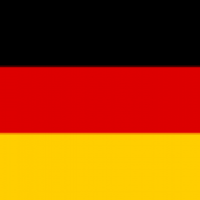Summary:
A consortium of German, Greek, and Austrian universities, together with partners from EU countries, look for partners from universities or enterprises with excellent expertise in materials development, (re-)manufacturing or big data for the HORIZON-CL4-2022-RESILIENCE-01-19-Call. The aim is to digitalize material development and characterization by simulation and machine learning to create cost-efficient sustainable, and circular applications. A research cooperation agreement is foreseen.
Description:
The Call HORIZON-CL4-2022-RESILIENCE-01-19 requires to address the following aspects:
- Develop an open repository for knowledge transfer, data sharing for integration between advanced materials characterization (material properties/functionalities) and modeling (data and physics-based, engineering modeling), allowing full interoperability between data and workflows (like for example Materials Modelling Data (MODA) or European Materials Modelling Ontology (EMMO)), with direct connection to the manufacturing process;
- Develop characterization techniques supporting key European technology area strongholds. The developed characterization methods should be complemented with and validated by modeling tools;
- Enable a model-based innovation process covering all stages from materials design (including several scales, e.g., from molecular to macroscale) to product development, including validation, characterization, and life cycle assessment, with the aim, in particular, of translating industry needs into innovation challenges and provide solutions;
- Increase the efficiency and effectiveness of materials and product development by reducing costs and time for product design, time-to-market, and regulatory compliance, which will enable the transition to a decarbonized economy;
- Improve handling of missing data using artificial intelligence/machine learning methods or simulation;
- Proposals should include a business case and exploitation strategy after the end of the action.
How:
This project aims to support the digitalization of materials modeling and characterization for sustainable and circular applications. Therefore, the triad of experiment, simulation, and artificial intelligence is used to directly incorporate the data and knowledge about recyclable materials into the product development process. This leads to a significant increase of recycled materials and circular solutions for many application areas.
For validating and testing the developed methods, use-cases across various application fields from automotive to medicine technology are investigated.
For this objective, the work is structured in the following focus groups:
- Digital Data Architecture
This is the backbone of the project structure since all information and data mined has to be structured and standardized in order to be usable for ongoing steps in product development.
- Material Development and Characterization
Investigates development and recycling strategies with corresponding characterization methods.
- (Re-)Manufacturing
Manufacturing and re-manufacturing use-cases and specimens for data-mining and component testing or validation of the digital models.
- Sustainability and Life Cycle
Investigates and evaluates the sustainability of the use-cases and develops new solutions for circular applications.
- Product Development
Develops methods to integrate the digital methods seamlessly into the product development processes and applies the methods exemplary on the provided use-cases.
- Experiments
Generating experimental data from specimens and use-cases. This data is used to set up the Digital Engineering tools and Artificial Intelligence (AI)-models and validate them later.
- Digital Engineering
Develops simulation methods and digital assurance tools for the recycled materials and circular applications
- Big Data and Artificial Intelligence (AI)
Develops AI-Models based on the experimental and simulation data to predict material and part behavior.
The consortium is looking forward to cooperating with the partners on this topic.
Deadlines for EOIs: 20 January 2022
Deadline for the Call: 30 March 2022
Type (e.g. company, R&D institution…), field of industry and Role of Partner Sought:
The specific activity of the partner:
University or enterprise with excellent expertise in one of the following fields:
- Development and characterization of materials
- Physics-based simulation
- Big data and machine learning
- Sustainability
- Manufacturing or Remanufacturing
The role of partners is to jointly apply to HORIZON-CL4-2022-RESILIENCE-01-19.
A Research cooperation agreement is foreseen.
IPR Status:
Other
External code:
RDDE20211222001








